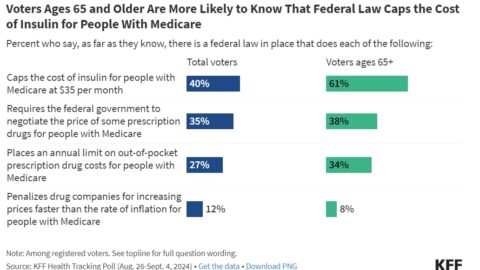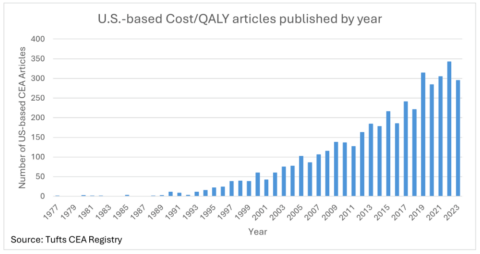If you want to search Cost Curve back issues or link to anything you read here, the web links and archive are online at costcurve.beehiiv.com. You can subscribe there, too.
This PhRMA blog post is a great look back at past panics around spending on a new, breakthrough drug, looking at the rhetoric and the reality of PCSK9s and hepatitis C medicines, both of which were predicted to swamp the health care system and neither of which caused the kind of damage predicted.
The PhRMA post references the current panic around obesity medicines, but these are lessons also worth applying to Alzheimer’s medicines, where overinflated estimates of near-term spending are still being produced despite real-time evidence that the ramp on these medicines is going to a lot more modest than folks thought even six months so.
As the Danes like to say, it’s hard to make predictions, especially about the future.
That’s not to say that Alzheimer’s drugs or, especially, obesity medicines won’t have an impact that must be managed.
But the historical record suggests that the impact won’t be as dire or as widespread as initially thought. Here, hep C is an interesting analog. Fears about spending, especially in government programs, led to restrictions on use that didn’t loosen as the medicines became cheaper, leading to a public health failure.
Sometimes, panics can create their own unintended (and unfortunate) consequences.
When Cost Curve launched, pretty much everyone who subscribed knew me personally. It was an exclusive, if narrow, club, and I didn’t spend much time talking about myself.
But “IYKYK” is not a particularly sound strategy for building relationships, and now that I’m closing in on the one-year anniversary of Cost Curve, I’d like to (re)introduce myself:
I’m Brian Reid, and I run a communications consultancy called Reid Strategic.
I’m a former journalist and longtime PR agency vet whose firm is dedicated to a critical topic: helping the biopharmaceutical industry and others talk about value, pricing, access, and reimbursement to external audiences — from patients to media to policymakers.
This has not, traditionally, been one of the industry’s strong points, and I think we can do better.
Reid Strategic has three areas of focus:
I help companies talk about the value of individual medicines, especially launch brands, in a way that builds a case for access and reimbursement.
I advise on how organizations can tell an even broader story about their approach to these topics, balancing commercial, reputational, and public affairs needs.
I work with organizations focused on specific policy priorities — the usual alphabet soup of PDABs, IRA, AMP Cap, PBMs — to ensure that the complexities are understood by audiences that may not live and breathe this stuff.
If your group has needs that align, please, please let me know: brian@reidstrategic.com.
So while Cost Curve is my vehicle to talk about the issues that I believe are crucial to building the health care system we all want, it’s not at the core of my business.
(That said, this newsletter isn’t such a pure enterprise that I would look askance at advertising. If you want to be the inaugural sponsor, I want to hear from you.)
CMS doesn’t tend to say much publicly about IRA implementation, so this AJMC piece out of ISPOR with extended remarks from CMS’ Kristi Martin is worth a look. Martin’s deep on IRA, and she speaks to both the basics of new draft guidance and some of the specific places they’re looking for feedback.
This is fascinating: Arnold Ventures put out a “one-pager” fact sheet on drug prices. (It’s actually three pages, but — hey — I get it! There’s a lot here!) Obviously, there’s a lot to push back on, but it’s a good encapsulation of what one of the most powerful forces in the drug pricing debate thinks are its best arguments. It’s also a good one-stop shop for the “greatest hits” of Arnold-funded research.
It’s great to see NPC’s Kimberly Westrich flying the flag for the idea that 340B has a very real and very negative impact on employer-sponsored health plans. 340B creates winners and losers, and those losers include the vast majority of Americans with commercial plans.
I’m not sure that this NPR radio hit on state coverage of obesity meds adds anything to the conversation, but NPR’s research and penetration is way too big to ignore, and understanding how NPR is framing things up has some utility, I guess.
The House Ways and Means Committee is marking up some telehealth legislation today that includes some PBM reform provisions. I’ll be honest: I’m not completely tracking against which PBM reform elements are in which bills. My view is that transparency efforts alone are pretty weak sauce, but removing anti-kickback safe harbor protection for rebates is a BFD. The legislative text being discussed today definitely has some rebate pass-through language, but I’m waiting for someone more authoritative than I to spell it all out.
Header image by Flickr user Elaine with Grey Cats.





